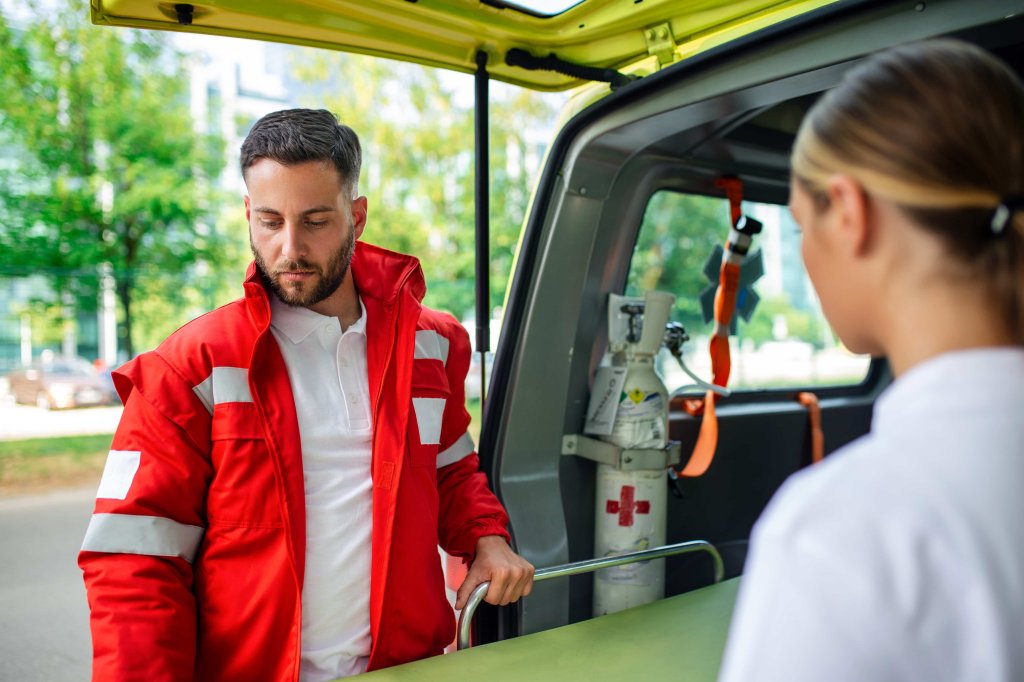Knowing when to go to the ER in case of an emergency can be life-saving. In this article, you’ll find out in which emergencies and with which symptoms you should immediately go to the ER and learn about the signs you need to be aware of during critical health moments.
What Is the Emergency Room?
The emergency room is a healthcare service designed for situations that require quick intervention during sudden and unexpected health issues. In cases such as heart attacks, strokes, and severe injuries, going to the ER is crucial.
Emergency Symptoms and What to Do
Heart Attack Symptoms A heart attack occurs when blood flow to the heart is suddenly blocked and requires rapid intervention. Symptoms of a heart attack include:
Chest tightness or pressure
Pain or discomfort radiating to the left arm, neck, or jaw
Shortness of breath
Cold sweating
Dizziness or fainting
What to Do? If you notice any of these symptoms, call 911 immediately and go to the ER. Time is critical.
Stroke Symptoms A stroke occurs when the blood flow to the brain is suddenly interrupted, and if not treated quickly, it can cause permanent damage. Symptoms of a stroke include:
Facial asymmetry (drooping on one side)
Weakness or numbness in the arm or leg, especially on one side of the body
Difficulty speaking and understanding
Sudden loss of vision or double vision
Sudden headache or neck pain
What to Do? If you observe any of these symptoms, immediately go to the ER. Call 911 right away during a stroke.
Severe Injuries and Bleeding Fractures, deep cuts, or internal bleeding can lead to serious health issues. Symptoms include:
Severe pain
Swelling and bruising
Limited movement
Uncontrolled bleeding or heavy bleeding
Loss of consciousness or confusion
What to Do? Try to administer first aid in case of injury, but go to the ER as soon as possible.
Breathing Problems Difficulty breathing, respiratory arrest, or other breathing-related problems require immediate intervention. Symptoms include:
Rapid or difficult breathing
Shortness of breath
Chest pain
Blue lips or nails (lack of oxygen)
Difficulty speaking
What to Do? If you see these symptoms, you should immediately go to the ER. Assist the person having trouble breathing and call 911.
Allergic Reactions and Anaphylaxis Allergic reactions can sometimes be life-threatening. Symptoms of anaphylaxis include:
Severe swelling (especially in the face and throat)
Difficulty breathing
Rapid heartbeat
Low blood pressure
Loss of consciousness
What to Do? If anaphylaxis symptoms are noticed, call 911 immediately and go to the ER. Epinephrine may be needed.
Suspected Infections and High Fever Some infections can progress rapidly and lead to serious complications. Symptoms include:
High fever (especially 39°C or above)
Rapid heartbeat and breathing
Confusion or disorientation
Rash or redness on the skin
What to Do? If these symptoms occur, especially in individuals with weakened immune systems, go to the ER.
First Aid and Preparedness in Emergencies
Quick and proper intervention during emergencies can save lives. It’s important to have first aid knowledge and be prepared for such situations. Also, knowing some steps before going to the ER can be beneficial:
Call 911: If you encounter an emergency, the first thing you should do is call 911. Explain the situation clearly and quickly to the operator.
Basic First Aid Knowledge: Knowing simple first aid practices can be life-saving until professional help arrives.
Prepare an Emergency Kit: Keep basic first aid supplies, important documents, and contact information in it.
When Should You Go to the ER?
Situations that require going to the ER are usually sudden and serious health issues. In general, if you observe life-threatening symptoms or serious injuries, you should immediately go to the ER. If you’re unsure whether your condition is an emergency, call 911 and get help from a professional health consultant.
The answer to when you should immediately go to the ER depends on the type of health issue you’re facing. In cases such as heart attacks, strokes, severe injuries, breathing problems, and severe allergic reactions, going to the ER immediately is crucial. Knowing these symptoms and acting quickly when necessary can make a big difference in protecting your health and ensuring the right intervention during emergencies.
Remember, time is very important in emergencies. Don’t hesitate to seek professional help when you notice the symptoms. Stay healthy and safe.




